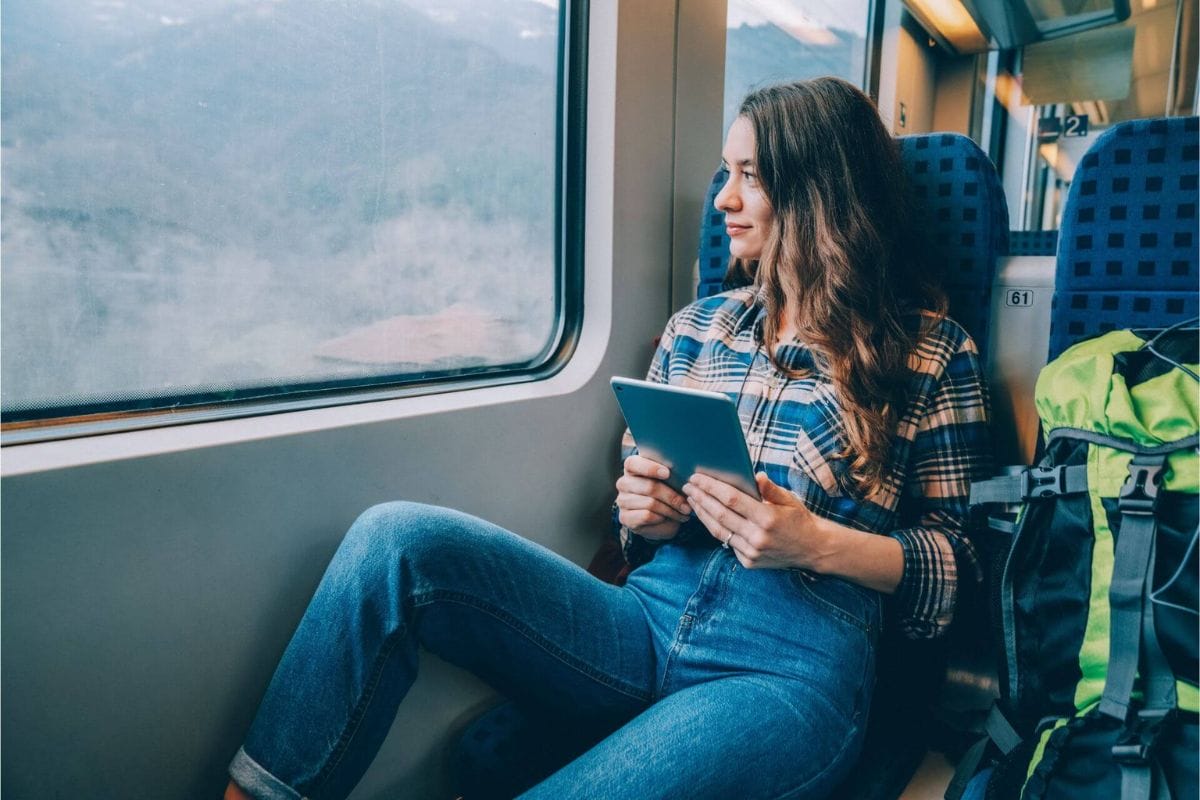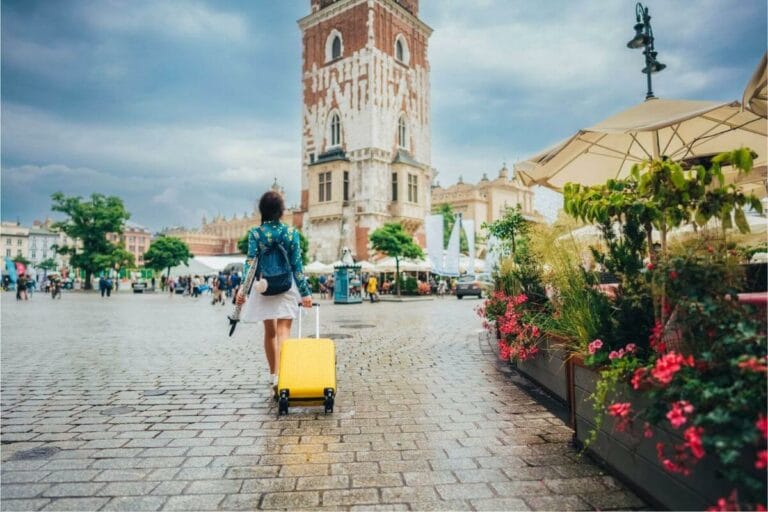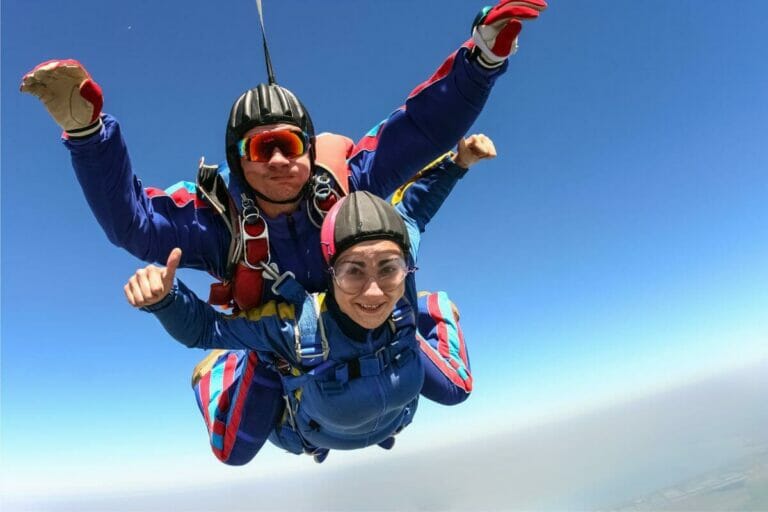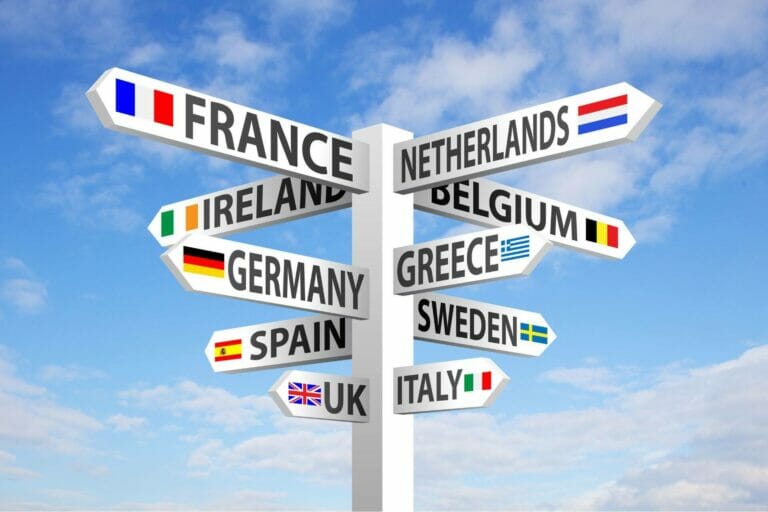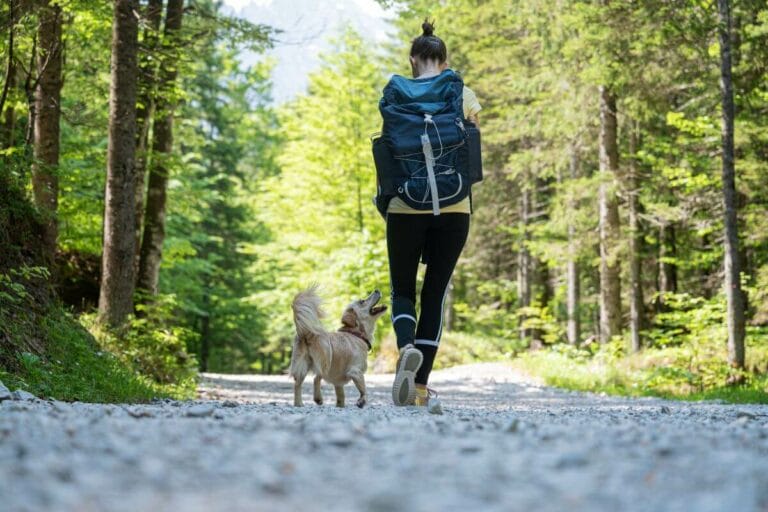10 Tips for Taking Your First Solo Trip
Starting on your first solo trip? Begin by choosing a safe, language-friendly destination. Plan your itinerary but allow flexibility. Reserve accommodations early for best options and discounts. Pack light with versatile clothes and essential items. Stay connected by getting a local SIM or data plan. Socialise by joining group activities and classes. Embrace spontaneity to discover hidden gems. Learn basic local phrases to engage meaningfully with locals. Enjoy your own company through reflective activities. Want more insight on making your solo adventure unforgettable?
Choose the Right Destination
Selecting the perfect destination is the first step in planning your successful solo trip. Start by considering first-time solo travel destinations like Canada, the USA, the UK, Ireland, Australia, and New Zealand. These countries are known for their safety and ease of communication, making them ideal for solo travelers.
Opt for places where your language is spoken. This will help you navigate more easily and feel comfortable during your trip. Language barriers can add unnecessary stress, so choosing a destination where you can communicate effectively is key.
Research budget-friendly and popular solo travel destinations. This helps you make an informed decision based on your preferences and interests. Some popular solo travel spots include Bali, Egypt, Thailand, Mexico, and Tanzania. These locations offer a mix of culture, adventure, and relaxation, ensuring a well-rounded experience.
Safety, affordability, and opportunities for personal growth should guide your choice. A well-chosen destination balances these elements, providing a successful solo travel experience. Make sure your first solo trip destination aligns with what you seek, whether it’s cultural immersion, adventure, or relaxation. This thoughtful selection process sets the foundation for an enjoyable journey.
Plan Your Itinerary
Creating a well-thought-out itinerary is essential for maximising the enjoyment and efficiency of your first solo trip. Begin by researching and listing your activities, transportation options, and key destinations. An organised plan guarantees you hit all the highlights without feeling overwhelmed. However, don’t forget to build some flexibility into your schedule. This way, you can accommodate unexpected discoveries or changes in plans without stress.
Prioritise key attractions and experiences that you absolutely don’t want to miss. Focusing on must-see spots will help you make the most of your adventure. It’s also wise to plan for downtime and relaxation. Solo travel can be intense, and allowing moments of rest ensures you avoid burnout and have time to reflect on your experiences.
For safety and accountability, share your detailed itinerary with a trusted person back home. They’ll know your whereabouts and can check in on you, providing peace of mind for both parties.
Book Accommodations Early
Booking your accommodations early guarantees you secure the best locations, room types, and prices for your solo trip. Popular destinations and peak travel seasons quickly fill up, leaving you with limited options if you wait too long. By planning ahead, you’ll have the freedom to choose lodging that fits your personal preferences and budget constraints.
Here’s why booking early is beneficial:
- Availability: Early booking means you can select from a wide range of accommodations before they get snapped up. This ensures you won’t have to settle for second-best or stay far from the sights you want to see.
- Cost-Effectiveness: Many places offer early booking discounts or promotions, which can save you a good chunk of money. Conversely, last-minute bookings often come with higher prices and fewer deals.
- Peace of Mind: Knowing where you’ll stay takes a significant amount of stress out of your trip planning. You won’t have to worry about scrambling for a room at the last minute.
Pack Light and Smart
Packing light and smart guarantees you have everything you need without the burden of heavy luggage. Start by choosing versatile clothing items that can be mixed and matched to create multiple outfits. This approach not only saves space but also assures you’re prepared for various scenarios. Limit yourself to essentials like toiletries, medication, and a few key accessories. It’s easy to overpack, but sticking to the basics keeps your luggage manageable.
Consider the weather and activities at your destination. This helps you pack appropriately and avoid unnecessary items. If you’re heading to a tropical location, lightweight, breathable fabrics are a must. For colder climates, layering is key. Opt for lightweight and compact travel gear, such as a portable charger, travel-sized toiletries, and a compact backpack. These items take up minimal space and keep your bag light.
Rolling your clothes instead of folding them not only saves space but also minimises wrinkles. This technique is especially useful for longer trips where you need to maximise every inch of your luggage.
Following these tips assures you’re well-prepared for your first solo trip without being weighed down by heavy bags.
Stay Connected
Staying connected during your solo trip is important for both safety and convenience. One of the first things you should do upon arrival is to purchase a local SIM card or an international data plan. This guarantees you have reliable internet access, which is vital for finding your way around and staying in touch.
To make your solo journey smoother, follow these three tips:
- Use GPS and map apps: These tools are priceless for exploring new places. They help you find your way, locate nearby attractions, and avoid getting lost. Make sure to download offline maps in case you lose internet connectivity.
- Check in regularly with loved ones: Keeping in touch with family and friends not only reassures them of your safety but also gives you peace of mind. Set a routine for updates, whether it’s daily texts or video calls, to keep everyone in the loop.
- Utilise social media and carry a portable charger: Share your experiences on social media platforms to keep your network updated and engaged. A portable charger is essential to keep your devices powered, ensuring you’re always reachable and ready to capture those memorable moments.
Staying connected enhances your solo travel experience, providing both practical benefits and a sense of security.
Prioritise Safety
While staying connected is important, prioritising safety on your solo trip guarantees a worry-free adventure. Carry a duplicate of essential documents like your passport and travel insurance details in case of emergencies. This secures you’re prepared if anything goes awry. Opt for well-reviewed accommodations with solid security measures. Reading reviews will give you peace of mind about where you’re staying.
Avoid sharing personal details with strangers and always be aware of your surroundings. It’s easy to get caught up in the excitement of new experiences, but staying vigilant helps you avoid risky situations. Keep a list of emergency contacts handy and bring a basic first aid kit. These precautions can be invaluable during unexpected situations.
Trust your instincts—if something feels off, it probably is. Prioritising your safety means listening to your gut and not taking unnecessary risks. Whether it’s choosing not to walk down a dark alley or declining an uncomfortable invitation, your intuition is a powerful tool.
Meet Fellow Travelers
Meeting fellow travelers can enrich your solo trip experience and help you form lasting connections. One of the easiest ways to meet others is by joining group tours or staying in hostels. These environments naturally foster interaction and can lead to some great friendships. Hostels often have communal spaces and organised activities, making it effortless to strike up conversations.
Using apps like Meetup, Couchsurfing, or Tinder can also facilitate meeting locals and other travelers. These platforms allow you to connect based on shared interests, ensuring a more meaningful interaction. For instance, you might find a local Meetup group that shares your passion for hiking or photography.
Participating in activities such as city tours, cooking classes, or group hikes can provide excellent opportunities to socialise. Here’s a quick list to get you started:
- City Tours: Join a walking tour to explore new places while chatting with fellow participants.
- Cooking Classes: Learn to cook local cuisine and bond with others over a shared meal.
- Group Hikes: Enjoy nature and camaraderie by joining a hiking group.
Socialising at communal spaces like cafes, bars, or co-working spaces can lead to spontaneous interactions and new friendships. Additionally, attending events, workshops, or language exchanges offers a fun way to engage with locals and other travelers during your solo trip.
Embrace Spontaneity
Letting go of rigid plans and embracing spontaneity can transform your solo trip into an adventure filled with unexpected delights. When you allow yourself to be open to unplanned experiences, you open the door to memorable moments, new friendships, and a deeper connection with your destination. Spontaneous decisions can lead you to unique adventures, off-the-beaten-path discoveries, and personal growth.
Here’s how embracing spontaneity can enhance your trip:
| Benefit | Description | Example |
|---|---|---|
| Memorable Moments | Capture unique experiences you didn’t plan for | Stumbling upon a local festival in a small town |
| New Friendships | Meet people you wouldn’t have if you stuck to a plan | Sharing a meal with locals at a hidden eatery |
| Deeper Connection | Engage more authentically with your surroundings | Wandering through neighborhoods off tourist maps |
| Unique Adventures | Discover places few tourists know about | Exploring an unmarked trail in the countryside |
| Personal Growth | Gain confidence and independence | Overcoming unexpected challenges on your own |
Learn Basic Local Phrases
Learning basic local phrases helps you communicate more effectively and shows respect for the local culture. When you know a few key phrases in the local language, it’s easier to connect with people and navigate your surroundings. This small effort can make a big difference, especially in places where English isn’t widely spoken.
To get started, focus on these three essential categories:
- Greetings and Courtesies: Simple words like ‘hello,’ ‘thank you,’ and ‘please’ can go a long way in building rapport with locals. These phrases show that you respect their culture and are making an effort to communicate.
- Directions and Essentials: Knowing how to ask ‘where is,’ ‘how much,’ and ‘bathroom’ can be incredibly helpful in everyday situations. These phrases can make your solo adventure smoother by helping you find your way and meet your basic needs.
- Practice Tools: Use apps like Duolingo, Babbel, or Google Translate to learn and practice these phrases before your trip. These tools offer a convenient way to get familiar with the local language and build your confidence.
Speaking even a few words in the local language can lead to more authentic and meaningful interactions during your solo trip. So, take some time to learn and practice these basic phrases.
Enjoy Your Own Company
After you’ve picked up a few local phrases, take the time to truly enjoy your own company and explore activities that bring you joy and fulfillment. Solo travel offers a unique chance to reflect, relax, and engage in self-care without distractions.
Whether it’s reading a book in a cozy café, strolling through a serene park, or simply meditating in your hotel room, these moments can be incredibly rejuvenating.
Use this time to discover new hobbies and interests. Perhaps you’ll find a love for photography as you capture the local scenery, or maybe you’ll enjoy sketching the bustling street scenes. Solo travel allows you the freedom and flexibility to focus on self-discovery and personal growth without the need to compromise with others’ schedules or preferences.
Appreciate the solitude and independence that come with traveling alone. It’s an excellent opportunity to recharge and connect with yourself on a deeper level. You’ll learn to enjoy your own company, relish the quiet moments, and understand more about your personal preferences and desires.
This self-awareness can be incredibly fulfilling and enriching, making your solo trip an unforgettable experience.
Frequently Asked Questions
How to Travel Solo for the First Time?
Traveling solo for the first time? Research your destination, plan a balanced itinerary, and share it with someone you trust. Pack light, stay open-minded, and embrace new experiences. You’ll discover personal growth and self-discovery along the way.
How Do You Enjoy Yourself on a Solo Trip?
You can enjoy yourself by exploring activities you love, joining group tours to meet new people, taking time to relax, capturing memories, and embracing spontaneous adventures. Keep an open mind for unexpected encounters and personal growth.
What Is a Good Age to Start Travelling Alone?
You should consider starting to travel alone in your late teens to early twenties. This age range offers the right balance of independence, maturity, and a sense of adventure, making it an ideal time for solo trips.
How Long Should a Solo Trip Be?
Your solo trip’s length depends on your comfort, budget, and travel goals. Start with a short 3-7 day trip to get a feel for it. If you’re more adventurous, try a longer 2-4 week journey.
Conclusion
Taking your first solo trip can be a life-changing experience. By choosing the right destination and planning your itinerary, you can set yourself up for an unforgettable adventure. Booking accommodations early, packing smart, and staying connected are essential steps to ensure a smooth journey. Meeting fellow travelers and embracing spontaneity can lead to new friendships and unexpected discoveries. Learning basic local phrases will help you navigate your destination with ease. Enjoying your own company is an opportunity for self-discovery and personal growth. Trust yourself, stay open to new experiences, and remember that the world is full of amazing places waiting for you to explore.
Safe travels!

